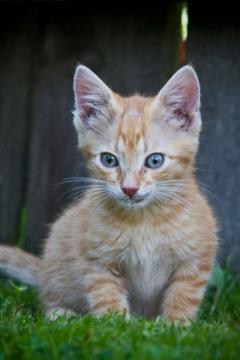The Top 5 Precautions to Take Concerning Pets at Easter

Spring has finally arrived, Easter is right around the corner and the signs of new life make us feel happy and invigorated. It’s a great time of year for us and our pets, but along with it come some potential hazards worth mentioning.
(1) The very popular Easter Lily is highly toxic to cats. This includes the leaves, the stem, the petals, and even the pollen. Ingestion of even a small amount can lead to severe kidney failure in cats. Some other types of lilies, such as Day lilies, Tiger lilies, and Asiatic lilies are also dangerous. Bouquets purchased from your florist frequently have these lilies in them, so before you give a bouquet as a gift to someone with a cat, check it very carefully.
Lilies are not nearly as dangerous if eaten by a dog, but in large amounts can lead to intestinal disturbances such as diarrhea or vomiting.
(2) Chocolate, so popular in Easter baskets, can be very poisonous to dogs. Generally, darker, more bitter chocolate, such as Baker’s chocolate and dark chocolate, are the most dangerous. A substance related to caffeine causes the toxicity. Signs include diarrhea, vomiting, hyperactivity, heart arrhythmias, seizures, and even death.
(3) Your own Easter dinner can be dangerous for your dog due to a condition referred to as bloat. Bloating occurs most often in large breed dogs with deep chests although it can happen to any breed of dog at any age. The most common cause is overeating and excessive drinking, a situation that can occur if you allow your dog to share your own meal. The novelty can cause them to eat too much. The problem can also be caused by letting your pet exercise or roll soon after a meal. The condition can be fatal.
(4) Those pretty Easter eggs that our children enjoy so much can be harmful, particularly to a cat, if too much dye is licked off the eggs. In addition, staphylococcus bacteria can be a serious problem if eggs are left out in a warm environment. Cracked eggs should be thrown away to avoid the risk of salmonella poisoning.
(5) When a pet eats a string-like material, it can get trapped at the base of the tongue or in the stomach and therefore be unable to be passed through the intestines. This can lead to severe damage of the intestinal tract, resulting in expensive surgery and even death. Unfortunately, “Easter grass”, the green or yellow fake grass that is often found in Easter baskets, is in this category of possible hazards.
While there are other potential springtime hazards to our pets, the above are the main ones that are most popular around Easter. Take care not to let your pet be exposed to these. Also, please refrain from giving a kitten or rabbit or chick as a gift for Easter. This practice often leads to uncared for or abused or homeless animals.


